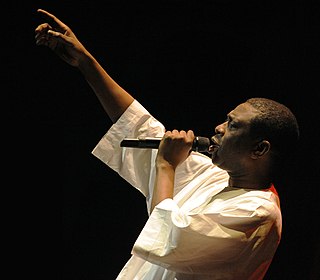Top 37 Quotes & Sayings by Youssou N'Dour
Explore popular quotes and sayings by a Senegalese musician Youssou N'Dour.
Last updated on April 14, 2025.
I think people should know more of Africa in terms of its joie de vivre, its feeling for life. In spite of the images that one knows about Africa - the economic poverty, the corruption - there's a joy to living and a happiness in community, living together, in community life, which may be missing here in America.




















